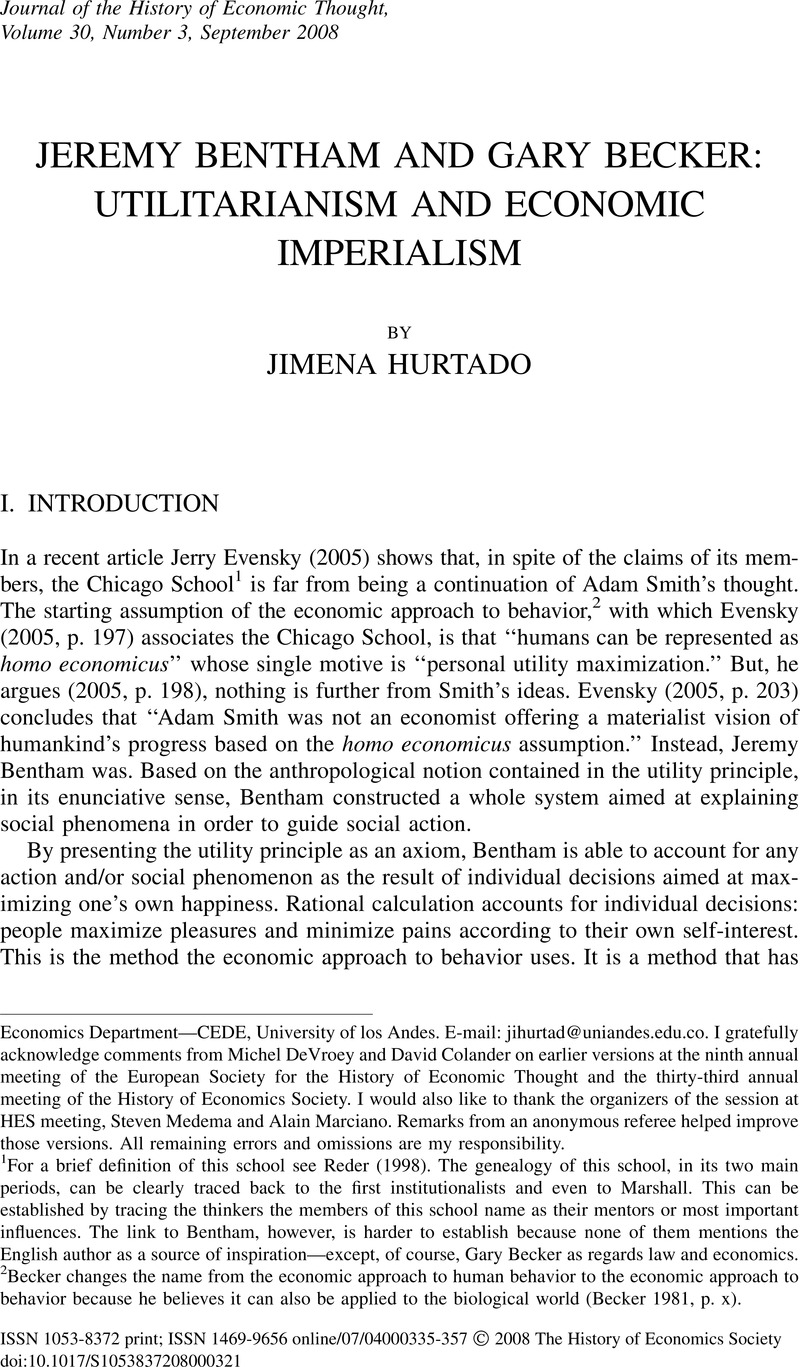Crossref Citations
This article has been cited by the following publications. This list is generated based on data provided by Crossref.
Hurtado, Jimena
and
Mick, Johanna
2011.
Utilitarianism and Economic Behavior. Looking for Benthamite Traces.
SSRN Electronic Journal ,
Hurtado, Jimena
and
Mick, Johanna
2011.
Utilitarianism and Economic Behavior. Looking for Benthamite Traces.
SSRN Electronic Journal ,
ANDREAS, JONATHAN
2011.
THE CARDINALIST MANIFESTO: THE EPISTEMOLOGY OF THE MEASURABILITY OF UTILITY.
Journal of the History of Economic Thought,
Vol. 33,
Issue. 4,
p.
559.
Fleury, Jean-Baptiste
2012.
Wandering Through the Borderlands of the Social Sciences: Gary Becker’sEconomics of Discrimination.
History of Political Economy,
Vol. 44,
Issue. 1,
p.
1.
Bracarense, Natália
2013.
Economic Development in Latin America and the Methodenstreit: Lessons from History of Thought.
Journal of Economic Issues,
Vol. 47,
Issue. 1,
p.
113.
Chassonnery-Zaïgouche, Cléo
2013.
L’économie des discriminations : conquête impérialiste ou contribution à la théorie des prix ?.
OEconomia,
p.
87.
Guidi, Marco
and
Sigot, Nathalie
2014.
Jeremy Bentham et l'efficience économique du droit.
Revue économique,
Vol. Vol. 65,
Issue. 2,
p.
225.
Cardao-Pito, Tiago
2016.
A Law for the Social Sciences Regarding Us Human Beings.
Journal of Interdisciplinary Economics,
Vol. 28,
Issue. 2,
p.
202.
Brady, Michael Emmett
2016.
The Das Economist Problem from 1790-2016: The Failure of Economists to Understand Adam Smith's Ethical Foundation, Based on Virtue Ethics, for the Wealth of Nations.
SSRN Electronic Journal ,
August, Vincent
and
Osrecki, Fran
2019.
Der Transparenz-Imperativ.
p.
1.
Ambrosino, Angela
Cedrini, Mario A.
and
Davis, John B.
2023.
Economics Imperialism and Economic Imperialism: Two Sides of the Same Coin.
SSRN Electronic Journal,
Ramirez, Carlos Hernan
2025.
The Post-War Evolution of Globalisation and International Order: From Liberal to Neoliberal International Order.
Global Society,
p.
1.
Ambrosino, Angela
Cedrini, Mario
and
Davis, John B.
2025.
Economics Imperialism and Economic Imperialism: Two Sides of the Same Coin.
Review of Political Economy,
Vol. 37,
Issue. 1,
p.
245.



